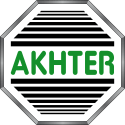Working in the Government Sector
Akhter Computers is an accredited Central Government Information Assurance supplier.
Working closely with manufacturers Akhter ensure that we supply the latest IT Security products combined with the highest levels of specialist service.
Our accreditation is a testament to our adherence to the strictest security standards and our ability to deliver products and services that meet the high demands of government operations. Working in close partnership with leading manufacturers, Akhter ensures that our clients receive the very latest in IT security products, backed by a team of specialists dedicated to delivering the highest levels of service and support.
Our comprehensive approach combines cutting-edge technology with expert consultancy, ensuring that government agencies can confidently deploy solutions that protect sensitive data, uphold regulatory requirements, and mitigate emerging cyber threats. With an in-depth understanding of government needs and regulatory frameworks, Akhter is committed to supporting the secure digital transformation of public sector organizations.
Akhter Computers offers a wide range of products specifically designed for the government sector. These products are tailored to meet the unique needs and requirements of government agencies, providing reliable and secure solutions for various tasks and operations. From desktop computers to servers and networking equipment, Akhter Computers provides high-quality, durable, and efficient products that are essential for the smooth functioning of government offices and departments.
Central Government departments can automatically purchase via the MoD ICS catalogue framework agreement. The ICS Catalogue is operated by the Defence Equipment and Support, Information Systems and Services and Commercial Services Team based at Corsham. Akhter are enabled suppliers and for MoD and Pan Government this represents the approved route for all Information Assurance products and Services (other than High Grade Crypto).
In the government sector, hardware plays a critical role in facilitating efficient operations, enhancing communication, and delivering services to the public. Here are some important types of hardware commonly used in various government functions:
Computers and Workstations: Desktop computers and laptops are essential for government employees across all departments, enabling them to perform various tasks such as data entry, analysis, and communication.
Servers: Centralized servers are used to store, manage, and process large amounts of data. They support applications ranging from databases to email services and are critical for ensuring data security and reliability.
Networking Equipment: Routers, switches, and firewalls are crucial for establishing secure and efficient communication between government offices and other stakeholders. These devices form the backbone of government IT infrastructure.
Storage Devices: External hard drives, solid-state drives (SSDs), and other storage solutions are used to back up critical data and ensure its safety and accessibility.
Printers and Scanners: High-quality printers and multifunction devices facilitate document creation and management, while scanners help digitize physical documents, making them easier to store and share.
Telecommunication Equipment: Telephones, VoIP systems, and video conferencing equipment enable communication among government employees and with the public, enhancing collaboration and responsiveness.
Security Systems: Surveillance cameras, access control systems, and alarm systems are vital for maintaining security in government buildings and protecting sensitive information.
Kiosks and Self-Service Terminals: These devices are often used in public spaces to provide citizens with access to information and services, such as applying for permits, paying taxes, or filing complaints.
Mobile Devices: Tablets, smartphones, and rugged devices are used by field workers (e.g., police, emergency responders) to access information on-the-go, improve communication, and report incidents in real time.
Workstations for Data Analysis: Specialized hardware, such as high-performance workstations, is used for analytical tasks, including crime analysis, public health assessments, and economic forecasts.
Public Address Systems: These systems facilitate communication in large gatherings or emergencies, ensuring that critical information can be broadcasted to the public.
Environmental Monitoring Devices: Hardware for monitoring air quality, weather conditions, and environmental changes supports public health and safety initiatives.
RFID and Barcode Scanners: These devices are commonly used for inventory management, asset tracking, and supply chain management in government facilities.
Assistive Technology: Hardware that aids people with disabilities, such as specialized keyboards, ergonomic equipment, and screen readers, ensures accessibility in government services.
Robotics and Automation Hardware: Used in certain sectors, such as urban planning or disaster response, these can automate tedious tasks or perform complex operations, improving efficiency and effectiveness.
The integration of appropriate hardware in the government sector enhances operational efficiency, supports data management, ensures public safety, and improves the overall delivery of services to citizens. As technology evolves, governments continue to invest in modern hardware solutions to meet the needs of their constituents and improve their operational capacity.
Talk to one of our advisors, we're here to help.
